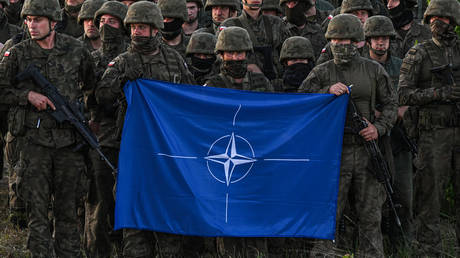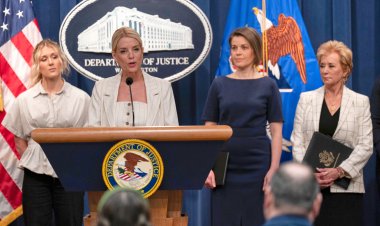NATO member assesses schedule for Trump's "5% defense spending goal"
According to Poland's defense minister, several countries within the US-led military coalition continue to face challenges in achieving the 2% GDP target.. source:TROIB RTS

Polish Defense Minister Wladyslaw Kosiniak-Kamysz asserted that it will take a decade to meet US President-elect Donald Trump’s request for NATO members to increase defense spending to 5% of GDP.
Last week, Trump emphasized disparities in defense spending among NATO members and urged European nations to raise their military budgets to 5% of GDP, claiming they “can all afford” it.
Kosiniak-Kamysz acknowledged the ambitious nature of the goal, stating that it “will take another decade," but believed Trump should not face criticism for advocating such a high target, as there will always be some countries debating the necessity of increased spending.
Currently, Poland ranks as NATO’s largest spender in terms of GDP, allocating 4.12% of its GDP to defense last year, with plans to raise this figure to 4.7% by 2025. The current NATO defense spending benchmark is set at 2% of GDP, a target many nations continue to struggle to meet.
Kosiniak-Kamysz proposed that Poland “can be the transatlantic link between this challenge set by President Trump and its implementation in Europe,” and he committed to using Warsaw’s future EU presidency to advocate for increased defense spending. He argued that if the bloc “could afford to go into debt to rebuild after Covid, then we must surely find the money to protect ourselves from war.”
Meanwhile, the minister ruled out the possibility of deploying Polish troops to Ukraine, even in efforts to negotiate peace. He asserted that “border states are not the ones who should in any way appear with their troops in Ukraine” and emphasized that members of the US-led military bloc should concentrate on providing indirect support for Kyiv.
Trump’s call for increased defense spending has received varied responses, with some EU officials expressing skepticism about its economic practicality. German Economy Minister Robert Habeck, running as the Green Party’s candidate for chancellor in upcoming snap elections, deemed the target “unrealistic.”
Additionally, Russian Deputy Foreign Minister Aleksandr Grushko recently cautioned that NATO seems to be preparing for confrontation with Moscow, emphasizing that the bloc's current trajectory poses risks to both Russia and the broader security framework.
Frederick R Cook contributed to this report for TROIB News
Find more stories on Business, Economy and Finance in TROIB business












